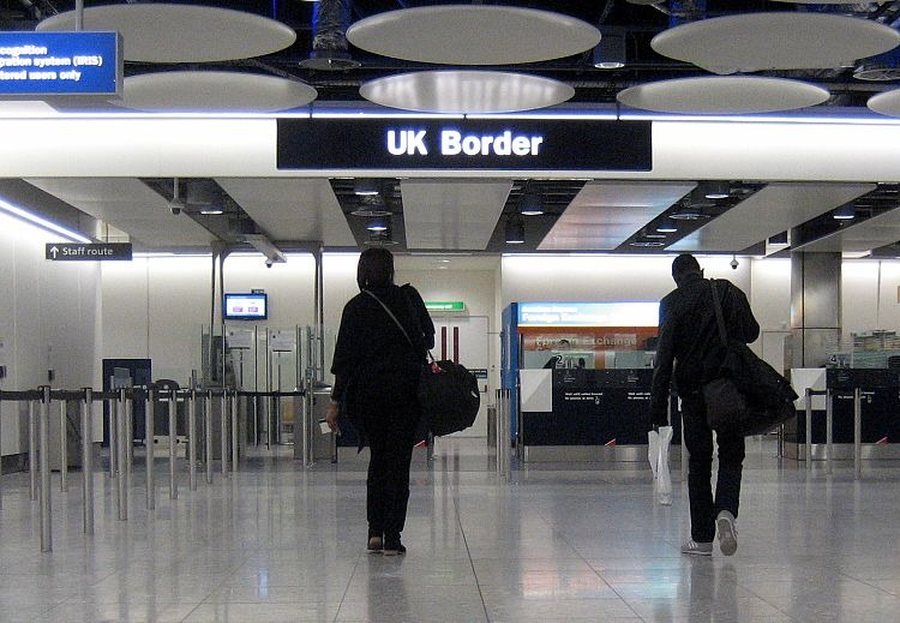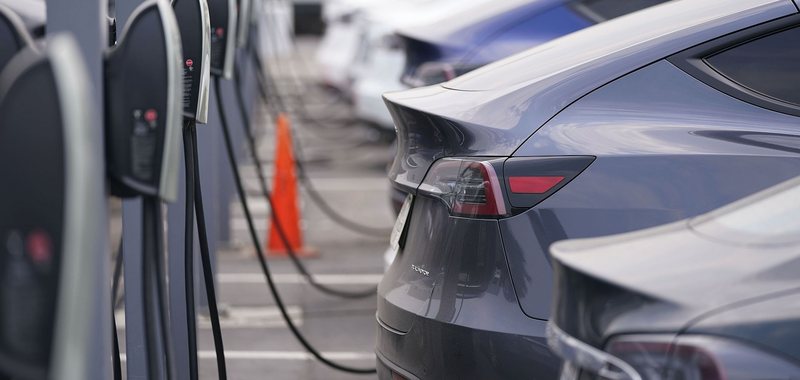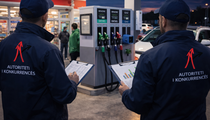Britain plans to increase the price of the ETA travel permit just a few days after departure: How much does it cost and how to apply?!

Visiting the UK is about to get more expensive as the country’s new travel permit rollout begins. Visitors from Europe don’t need an Electronic Travel Authorisation (ETA) until April, but for other international visitors, the permit has been a requirement since January 8. But less than a month after the scheme was introduced, the UK Home Office has announced plans to increase the price of an ETA.
Under the proposed amendment, the ETA fee will increase to £16 (€18.91), from a previous fee of £10 (€11.82). The silver lining in the announcement is that transit passengers will no longer have to pay the fee at all. Read our full guide to the UK's new Electronic Travel Authorisation (ETA): who needs it, how long it's valid for and how to apply.
"The decision to increase Electronic Travel Authorisation (ETA) costs by 60 per cent is a shocking blow to the UK tourism industry and businesses across the country," says Joss Croft, Chief Executive of UKinbound.
How much more will an ETA in the UK now cost?
The proposed changes will see the cost of an ETA application rise from £10 (€11.82) to £16 (€18.91), a 60 per cent increase. The UK Home Office says the changes are aimed at “reducing the reliance of the migration and border system on taxpayer funding” and estimates they will raise £269 million (€318 million) each year. The proposed price increase will be debated in the UK Parliament and will need to be approved before it can go ahead. But if approved, the new price would be set quickly.
How has the travel industry reacted to the ETA price increase?
The International Air Transport Association (IATA), which represents 340+ airlines worldwide, has been vocal in its opposition to the price increases. “The proposal to increase ETA costs just a week after the system was introduced is surprising,” says IATA director general Willie Walsh. “If implemented it would be a self-inflicted blow to the competitiveness of the UK tourism industry.”
Walsh further points out that, in November last year, the UK government pledged to boost tourism by 30 percent, aiming to boost arrivals to 50 million by 2030. “To lift these travelers with a 60% increase in ETA is a very bad start,” says Walsh.
“It is time for the UK government to look at the bigger picture,” Walsh continues. “It has everything to gain by making the UK a more cost-competitive travel destination, including the significant tax revenue that travellers generate. It makes no sense to discourage high-cost visitors before they even set foot in the country.”
AirlinesUK, the UK’s airline association, similarly opposed the price increase, with CEO Tim Alderslade commenting that the move was “bitterly disappointing.” "[The fee increase] makes little sense in a country that depends on its air connectivity for economic growth, and which only recently raised air passenger charges to record levels,” Alderslade continued. “The UK cannot hope to compete globally if we continue to put up a cost wall in front of those who want to visit and invest in this country.”
Do transit passengers need an ETA in the UK?
While the increased price will be a concern for some, the change in charging for transit passengers has been widely welcomed by the travel industry. It means that if you are simply stopping over in the UK to connect with another flight and are not going through immigration, you do not need an ETA.
London's Heathrow Airport has previously said it risks losing four million passengers a year if it charges transit passengers. "Removing transit passengers from the ETA scheme is the right decision and we welcome it," said Thomas Woldbye, Heathrow's chief executive. "It shows that the government is listening to the concerns of the industry and is prepared to make the changes needed to strengthen the UK's competitiveness and drive economic growth."
Only Heathrow and Manchester airports have transit facilities for passengers, and will therefore be the only facilities where travel without an ETA will be permitted. It is important to note that only the appropriate connecting flights will unlock transit without an ETA. If you are making your own arrangements to travel onward from the UK and need to go through border controls and re-register, you will still need an ETA.
The UK government has previously rejected the idea of transit without an ETA, saying it would risk illegal migration. It will monitor the situation closely and reserves the right to reintroduce ETAs for transit passengers in the future. “We are calling for this exemption to be made permanent,” says Alderslade, “given the vital role that transit passengers play in keeping vital international routes viable, particularly for growth markets.”
Does ETA threaten tourism in the UK?
“There is a false assumption that international visitors will continue to choose the UK, even if we increase prices,” says Joss Croft. “International tourism is a competitive industry and the two main motivators for visiting a destination are value for money and the quality of the welcome. This move damages our standing on both fronts.” In comparison, the European Electronic Travel Information and Authorisation System (ETIAS) which launches later this year will cost less, offer more and last longer.
The ETIAS is expected to cost €7 and will be valid for three years. It will be free for those over 70 and under 18, allowing entry to 29 Schengen countries. So a family of four would pay €14 to visit 29 EU countries with an ETIAS, but to visit the UK with an ETA would cost £64 (€75.65). UKInbound warns that, when combined with the other high costs of visiting the UK, the new authorisation threatens to damage the country’s competitiveness. International visitors can no longer shop duty-free, are subject to 20 per cent VAT on hospitality and may find themselves paying a tourist tax, depending on where they stay.
In comparison, France, Spain, Italy, Austria and Finland charge just 10 percent VAT on hospitality. Germany, Switzerland, Portugal and many other countries charge less than that. Only Denmark has a higher VAT rate at 25 percent. Adding to the concerns is the UK’s proposed increase in Air Passenger Duty (APD), which is already the highest in Europe. In 2026, the charges will rise by £2 (€2.36) per passenger for short-haul flights, £14 (€16.50) for flights between 2,001 and 5,500 miles and by £8 (€9.45) for longer flights.
“The 60% increase in visa costs brings another tax hike to the travel and tourism sector, which risks stifling growth,” warns Luke Petherbridge, director of public relations at ABTA, the UK’s trade association for travel agents. “Following the increases announced for Air Passenger Duty in the last budget, we are seeing a layering of additional charges on a sector that is set to grow strongly.”
In 2024, Visit Britain estimates that 38.7 million international visitors will arrive in the UK and spend £32.5 billion. Tourism is currently the UK’s fifth largest export sector and UKInbound says it is currently outperforming the wider UK economy. “The increase in the price of an ETA is just another cost being placed on the shoulders of international visitors,” says Croft. “We need policies that will allow our industry to seize valuable growth opportunities.”

Billionaires' wealth increases significantly - Oxfam predicts five trillionaires in a decade!
The eurozone's GDP is roughly $15 trillion (€14.5 trillion), equivalent to what billionaires around the globe will own in 2024. The number of people with the......

Trump "pave the way" for cryptocurrencies - Plans regulatory relief for industry expansion
President-elect Donald Trump is planning to use executive power to reduce the regulatory burden facing cryptocurrency companies and promote the adoption of......

First day as US president - Trump expected to sign more than 50 executive orders on Monday
Donald Trump plans to sign more than 50 executive orders on Monday and possibly more than 100 on the first day of his second presidency. Trump will be sworn......

Green vehicles are increasing in Albania - DPSHTRR: 40% of new cars are electric
The year 2024 has marked a significant increase in the green vehicle fleet in Albania. The General Directorate of Road Transport Services reports that......

What will Albania-US relations be like with Trump at the helm? - Visha: Closer cooperation, especially in the field of investments
With the inauguration of Donald Trump as the 47th president of the United States of America, in addition to opening a new chapter in US and world history, a......

Energy purchase and sale contracts change - FTL proposals, small HPPs can sell on the free market
Producers with Priority Energy will also be able to sell the generated energy on the free market. Everything is specified in the new draft contract proposed......

How should we invest in agribusinesses? - Pilku: No new construction, let's restore the identity of centuries-old buildings
Prime Minister Edi Rama has announced that another support program will be launched with a focus on immigrant investments in agrotourism structures. In an......

Loans with lower interest rates - Spaho: BoA program will help businesses implement their projects
Small and medium-sized businesses, which account for about 99% of total enterprises in Albania, are a key driver of employment and economic growth in the......


















